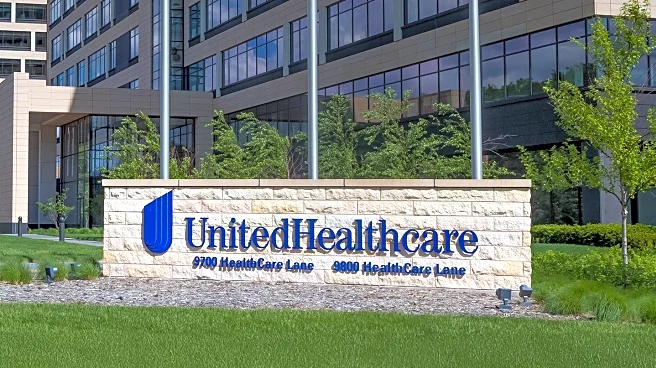What's Happening?
Humana and Providence Health & Services have announced a new partnership to develop a scalable data exchange ecosystem aimed at improving interoperability and care coordination within the healthcare industry.
The initiative seeks to address the challenges posed by fragmented and inconsistent data formats that hinder effective care delivery. By utilizing HL7 Fast Healthcare Interoperability Resources (FHIR) and other modern application programming interfaces (APIs), the partnership aims to create a shared foundation of administrative, financial, and clinical data. This framework is intended to be easily replicable, serving as a scalable model that can transform care across the healthcare industry. The data sharing ecosystem is set to go live later this month, initially focusing on automating member attribution for Humana Medicare Advantage members.
Why It's Important?
The collaboration between Humana and Providence Health & Services is significant as it addresses a critical issue in the healthcare industry: the lack of interoperability in data sharing. By creating a standardized data exchange system, the partnership aims to reduce administrative burdens and enhance clinical decision-making, ultimately leading to more effective care delivery. This initiative aligns with the interoperability pledge made to the White House and the Centers for Medicare & Medicaid Services (CMS), which outlines voluntary criteria for data exchange and accessibility. The success of this partnership could serve as a blueprint for broader industry adoption, potentially leading to improved healthcare outcomes and reduced costs.
What's Next?
The data exchange ecosystem is scheduled to launch later this month, with initial capabilities focused on automating member attribution for Humana Medicare Advantage members. As the partnership progresses, additional capabilities will be developed to further reduce administrative burdens and enhance clinical decision-making. The CMS Interoperability and Prior Authorization Final Rule will soon require payers to implement processes and API capabilities to open up fragmented data systems. This initiative by Humana and Providence Health & Services is a proactive step towards meeting these requirements and advancing interoperability goals.
Beyond the Headlines
The partnership between Humana and Providence Health & Services not only addresses technical challenges but also has ethical and cultural implications. By improving data interoperability, the initiative supports the broader goal of patient-centered care, where clinicians, patients, and payers can access and share information seamlessly. This shift towards a more integrated healthcare system could lead to long-term improvements in patient outcomes and satisfaction.










